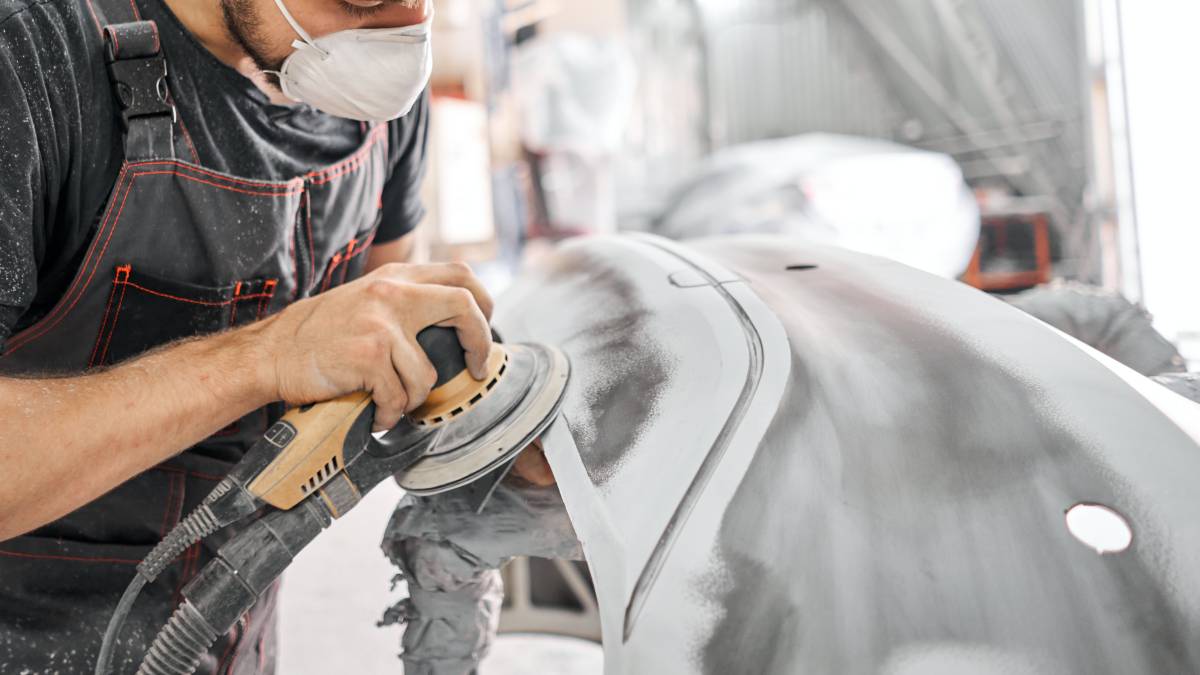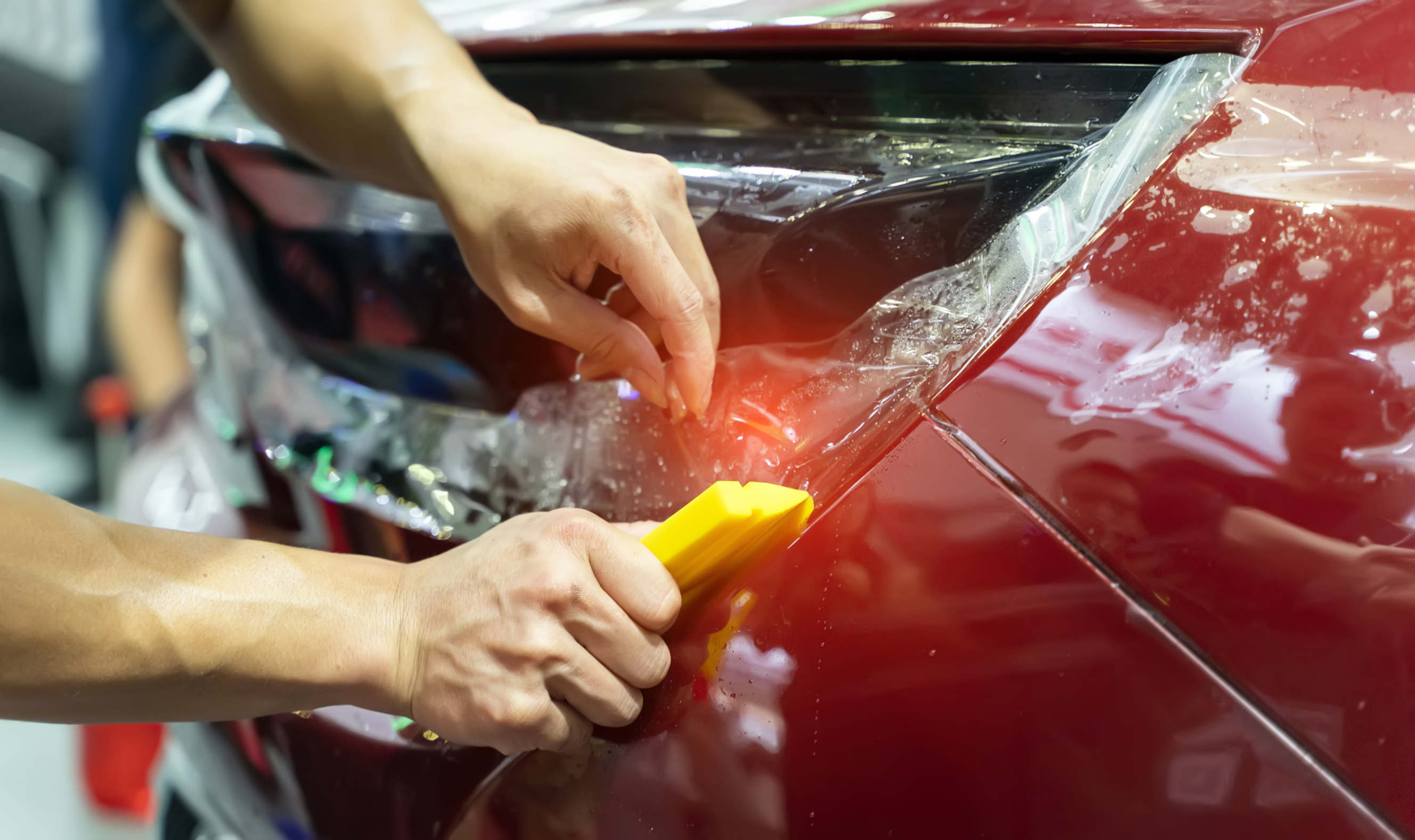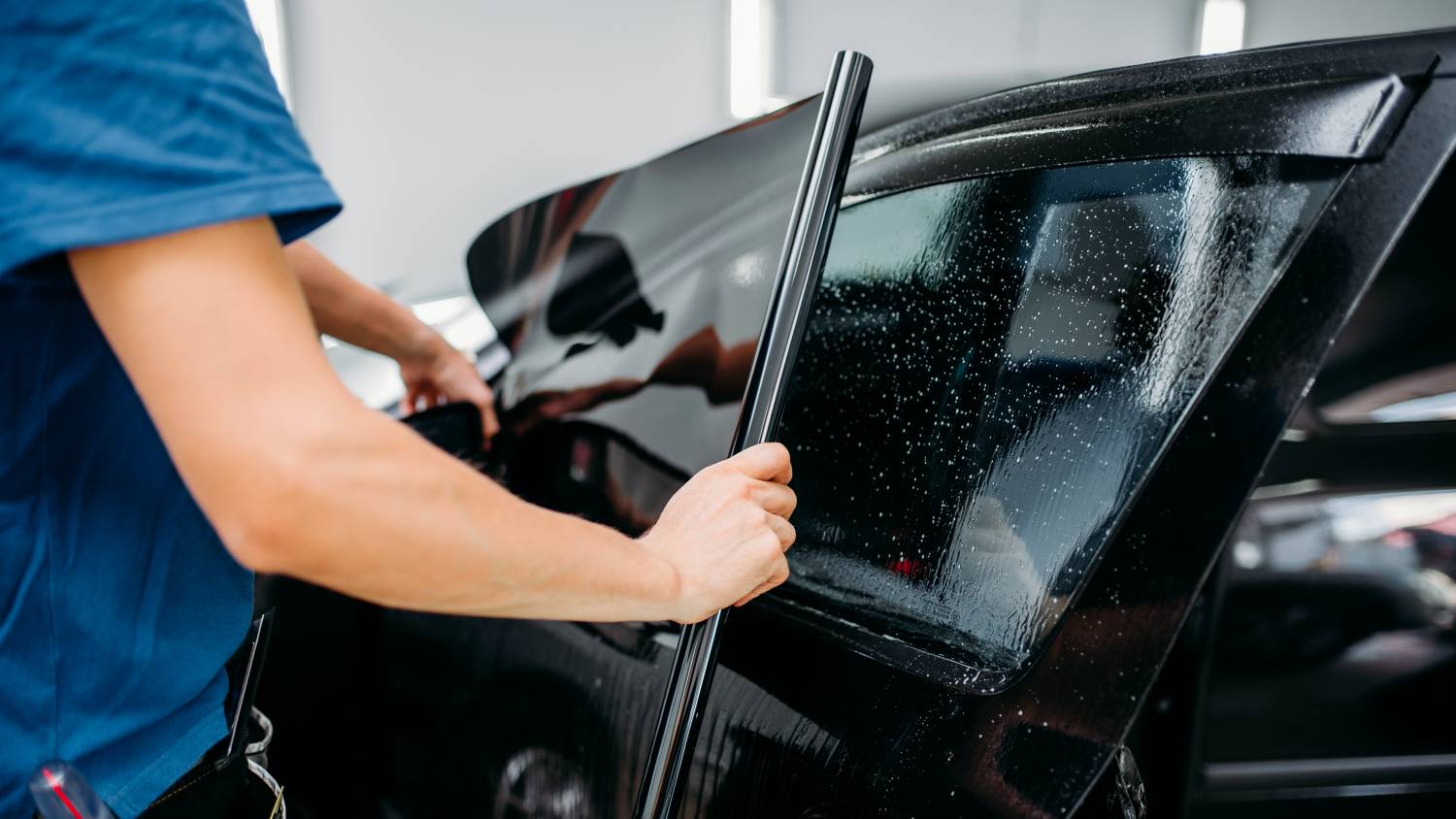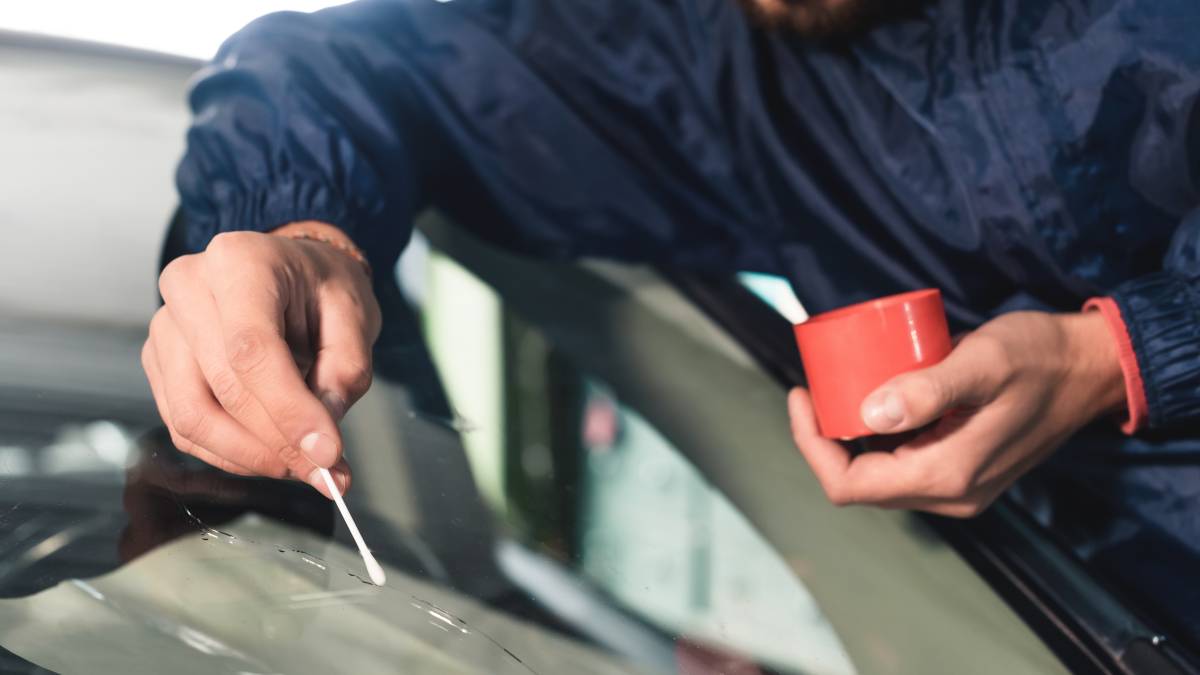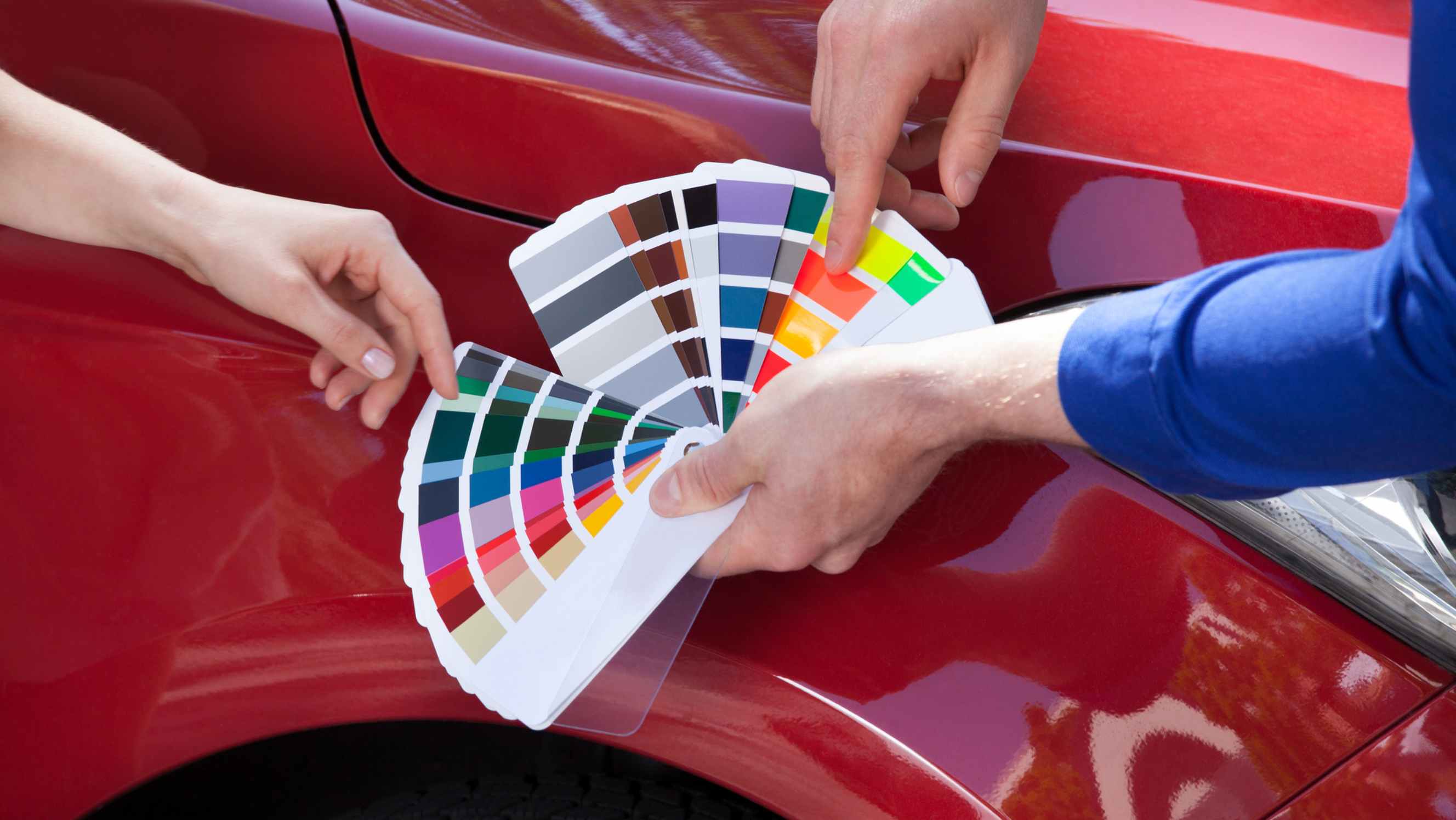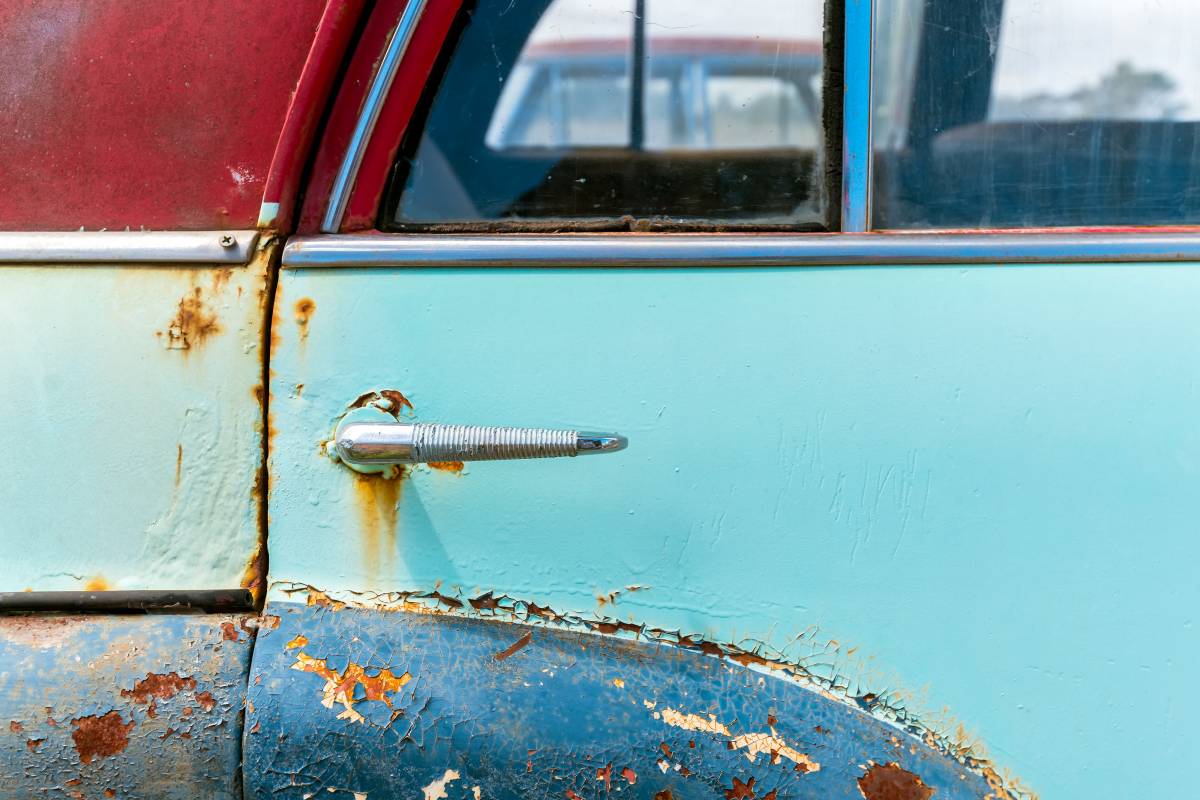- Home/
- Costs/
- Car Respray/
- Car Respray Cost Guide
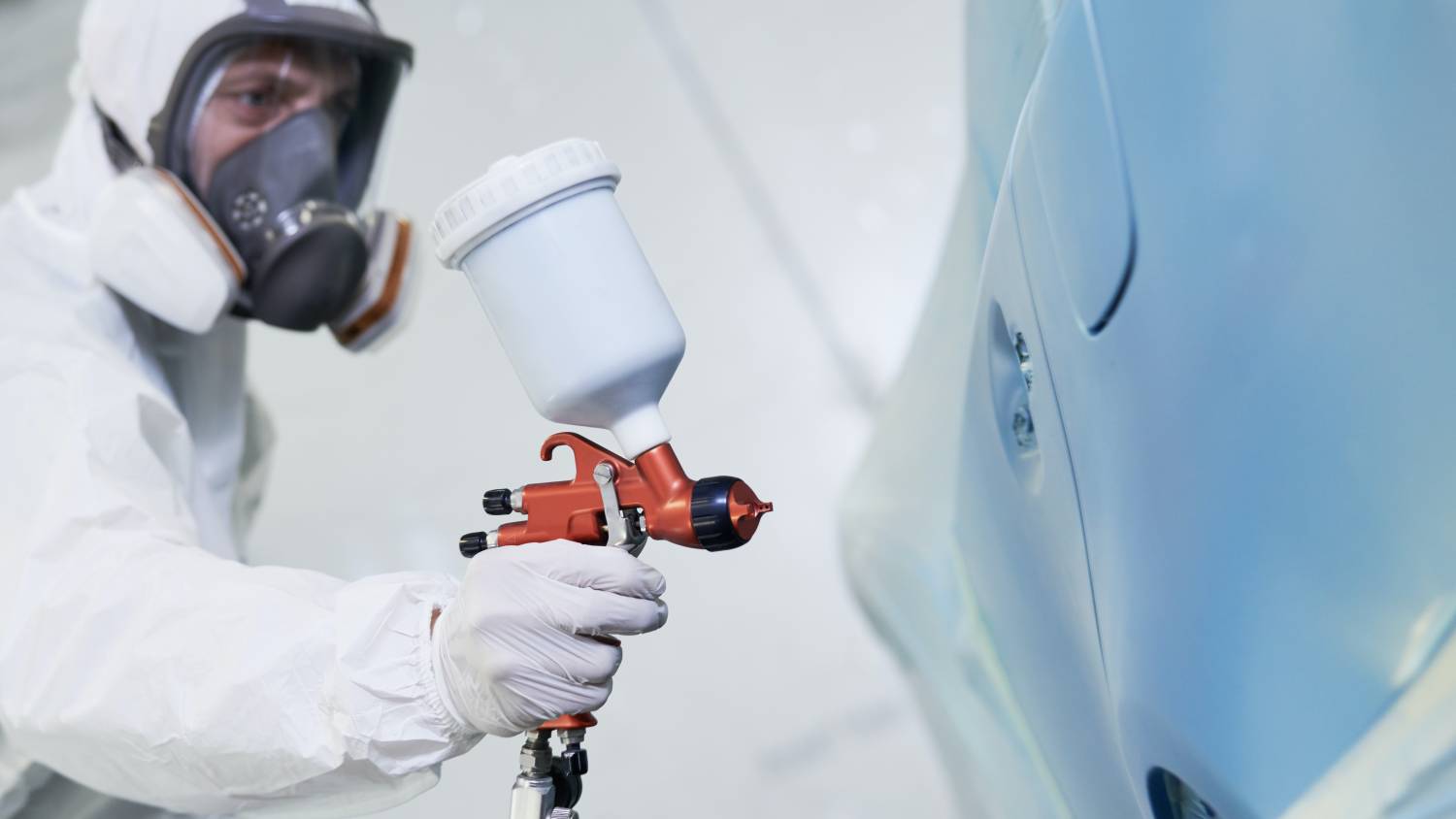
How much does car respray cost in the UK?
Get a free quote nowPost to find a price. It's free and only takes a minute.
Car respray average labour cost
£800 - £5,000
low
£800
median
£2,900
high
£5,000
Last Updated on
Key Facts
Car respray labour costs in the UK range from £800 to £5,000, depending on the city and type of car. Luxury cars and colour changes can increase the price, with some jobs reaching up to £10,000.
Solid paint is more affordable than finishes like pearlescent or metallic.
Respraying involves hazardous materials, so safety precautions are necessary.
A shabby car can be a real eyesore. If your car is looking like it needs a little touch-up, you might want to get it resprayed. But before you see any service providers, it’s important to understand car respray costs. Is a respray worth the investment? Keep reading.
Car respray prices in the UK can vary widely. Luckily, our guide can help you find the right spray paint job for your car and inform you of the factors affecting those pricing. If you’re ready to make it look like new—or even better—here’s what you should expect.
What are the average costs of car respray in the UK?
First things first—car respraying is the act of applying a new coat of paint to your car. While it seems simple enough, it’s nothing like just slapping a spray paint on a car and calling it a day.
How much does a car respray cost? It often ranges from £800 to £5,000, with a national average of about £220 per panel. Luxury car jobs can cost more due to the higher level of care they entail. If you’re planning to paint your car a different colour or you need more extensive work, expect to pay around £5,000 or higher.
Here's a table with information on how much to respray a car across different places in the UK:
| City | Average labour cost range |
|---|---|
London |
£2,500 to £5,000 |
Birmingham |
£2,000 to £5,000 |
Manchester |
£2,500 to £5,000 |
Glasgow |
£1,000 to £5,000 |
Leeds |
£3,000 to £4,000 |
Liverpool |
£1,000 to £5,000 |
Newcastle upon Tyne |
£1,000 to £2,500 |
Sheffield |
Starts at £800 |
Bristol |
£2,500 to £3,000 |
Edinburgh |
Starts at £800 |
Leicester |
£2,500 to £3,000 |
Coventry |
Starts at £1,600 |
More metropolitan areas are often more expensive with car respray costs in the UK, as you can see above with London, Birmingham, and Manchester.
What factors affect the costs of car respray?
Several factors affect the costs of car respray, such as:
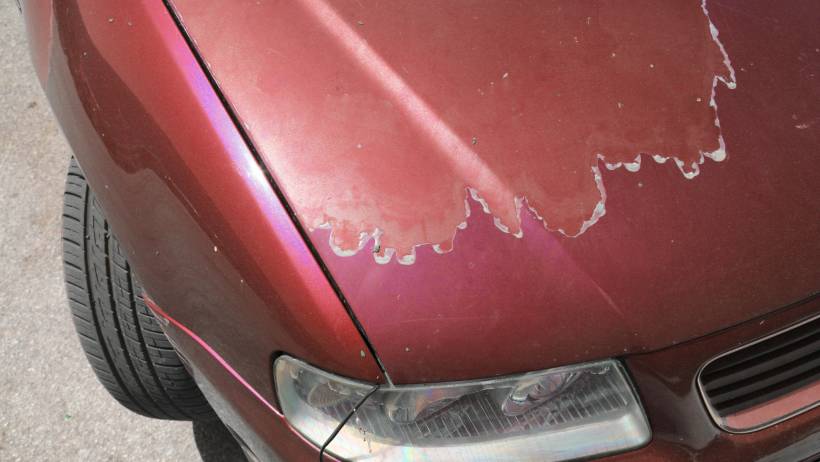 Peeling paint reveals the car's true colours. (Source: iStock)
Peeling paint reveals the car's true colours. (Source: iStock)
Extent of damage
The level of existing damage significantly impacts costs. Vehicles with extensive scratches, dents, or rust require more preparation and labour.
Cars with minor surface scratches may only need a quick touch-up, while deeper dents or substantial rust damage require more extensive restoration, potentially involving panel beating and metalwork. This additional work increases both the time and labour cost involved in the respray process.
Labour costs
Speaking of labour, rates vary by region and expertise. Shops in metropolitan areas may charge more due to higher operational costs, including the shop’s rent, training, equipment, insurance, and more. Additionally, highly skilled technicians with specialised training typically charge more.
Types of paint job
The difference between minor paint chipping, deep scratches, and rusting will affect your total car respray cost. This is because chipping can easily be painted over, while rusting is a more complex task and may require a panel beater fixing the car’s metal before any repainting can occur. Understanding your specific needs will help you get a more accurate estimate from your chosen service provider.
Paint brand and finish
The simpler the paint job, the less expensive it is. For example, a pearlescent finish is typically more expensive than just a solid shade of paint. Pearlescent finishes and similar special finishes have a special chemistry that gives cars a more distinctive, ‘new car’ look. Here’s a table of paint types and their estimated costs to help you understand how these can affect your overall car respraying budget.
| Paint type |
Description |
Average cost range |
|---|---|---|
Solid paint |
Standard option for most cars |
£74/litre |
Metallic finish |
Brighter, shiny finish |
£70litre |
Pearlescent |
Infused ceramic crystals, processed similarly to metallic car paint |
£70 per US quart (0.94 L) |
Matte |
Produces a flat, non-shiny finish |
£80 per 5 litres |
Gloss |
High-shine finish with a vibrant and polished look |
£80 per 5 litres |
Satin |
A soft sheen finish with a smooth, matte-like appearance |
£22 per kit (1.5 L) |
Car size and model
Generally, larger vehicles require more paint, which naturally increases the overall expense. Luxury cars may also be a challenge to repaint since some may require a unique or patented shade of paint that the shop must closely match, especially if the original manufacturer’s paint isn’t available. Any specialised techniques needed to achieve the desired finish can further elevate the cost of the respray.
Additional services
Optional services like clear coat application, rust treatment, or car detailing can incur additional costs. Some even offer car installation services for accessories. A clear coat is often applied after painting to boost its durability and provide a glossy finish; however, this service comes at an extra cost. Meanwhile, rust treatment is essential for maintaining the vehicle’s integrity and may involve additional labour if extensive repairs are necessary before painting.
What are some ways to save on car respray?
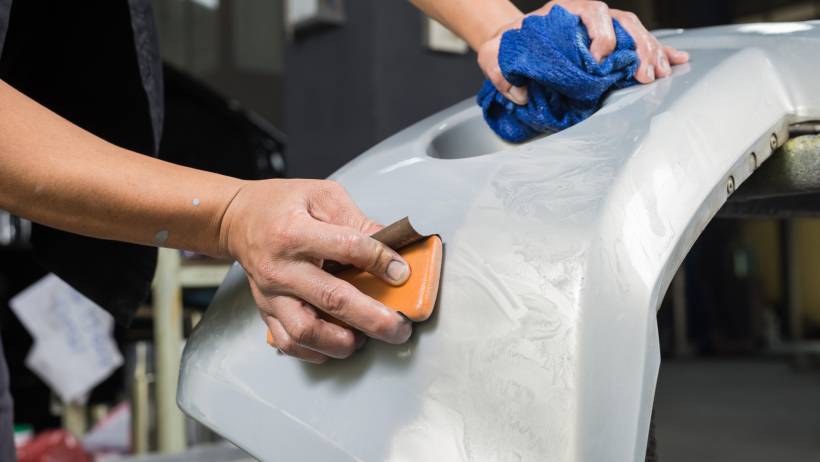 Sanding a car for a fresh coat. (Source: iStock)
Sanding a car for a fresh coat. (Source: iStock)
To save on car repaint costs, consider these strategies on how to set a proper budget:
Partial vs. full: Focus on the areas that need it, like the bumper or a door, and you can save some money compared to a full-body job. Note that partial jobs have variable costs depending on the car part; a car roof respray, for example, may cost more than respraying a single door.
Shop around: Get quotes from at least three different detailing and bodywork shops and ask them how much to spray paint a car. Some might be more expensive but offer better quality or terms.
Paint type: Solid paint is the cheapest option. Metallic or pearlescent finishes are flashy, but they'll cost you more. Note that ‘shinier’ finishes usually have special maintenance requirements. For example, metallic paint finishes are susceptible to dust and dirt, so you may have to clean them more often.
Discounts: Ask about any discounts or promotions they might have going on. Sometimes they'll have deals for certain days of the week or for certain types of work.
Consider alternatives: Some alternatives to car respraying include car wrapping, which also allows you to change your car’s design. Car wrapping costs at least £700, depending on your vehicle’s make and model.
Extras: Clear coat, detailing, rust treatment—these are all ‘nice-to-haves’ that can add up. Think about what you really need versus what you can live without.
DIY prep: If you’re capable and know how to do masking and sanding, you can do some of the prep work yourself. The big caveat is that if you’re unfamiliar with any of these, you better leave it to car spray paint professionals.
Reasons to choose professional car respraying
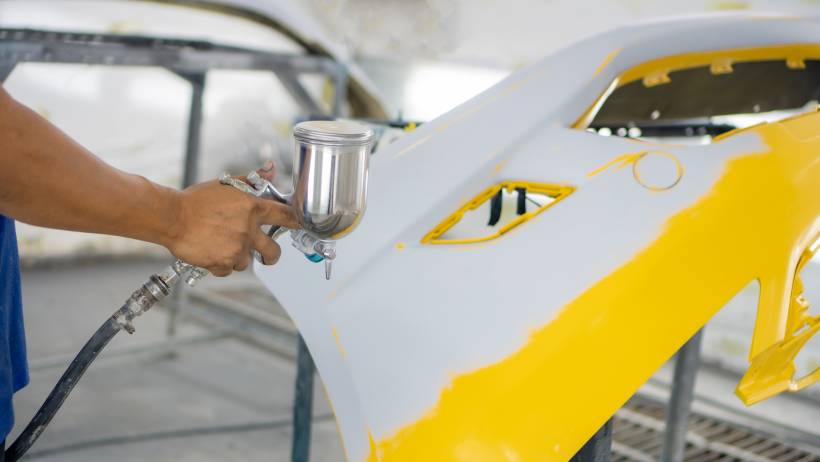 Spraying yellow paint onto a car bumper. (Source: iStock)
Spraying yellow paint onto a car bumper. (Source: iStock)
While we’re on the subject of professional car spraying, there are five good reasons you should find a professional who knows what they’re doing as opposed to DIY-ing the project.
Quality results
First, obviously, is the difference in results. You get what you pay for, and paying for car repainting professionals means you’re getting the best quality possible. One reason is that they use the right tools, techniques, and materials, and they know how to use them. You’re not getting that same level of quality with a rattle can and a YouTube tutorial.
Cost-effective
It’s not an easy job to do a car repaint job unless you are an experienced car detailer. More often than not, you might make mistakes and have to do it again (or even end up hiring a car respray professional, which you could have done in the first place). You save money by hiring them from the outset instead of charging your errors to experience.
Saved time and effort
Respraying a car isn’t a one-hour job; sometimes, it’s not even a one-day job! It takes time, skill, and a ton of patience. You’ll be spending your weekends sanding, masking, and painting, and you still might not get the results you want. Rush through it, and you’ll end up spending more than just letting your car stay at the shop for a week or two.
Personal safety
Respraying involves using hazardous materials. You’ll be working with paint, solvents, and other chemicals that can be dangerous if not handled properly. The pros know how to work safely and responsibly, so you don’t have to worry about inhaling toxic fumes or causing an accident.
Post a task for car respraying
Now that you’re equipped with all the ins and outs of car respraying, it’s time to take action and give your car the makeover it deserves. Whether you’re looking to restore its original shine or try out a bold new colour, the right professionals are just a click away. Why wait any longer to drive a car that feels brand new?
Head over to our platform and post your car respray task. Share your expectations, set your budget, and wait as skilled local car resprayers offer their services. With competitive offers and expert craftsmanship, you’ll be back on the road in style in no time. Don’t just dream about a stunning car—make it a reality. Your journey to a refreshed ride begins here!
FAQs on car respraying
Generally, it is cheaper to wrap a car than to repaint it. Car wrap costs typically start at around £700, while a full car respray in the UK can begin at £1,000 and go up to £5,000.
In addition, wrapping a car is quicker, taking only a few days compared to several weeks for a full respray. However, wraps only last for about 3 to 7 years, while a good car respray job can last twice as long.
You should wait at least two weeks after the new car paint job. You can wash your car with a soft cloth and a mixture of water and soap. Avoid using coarse brushes or abrasive cleaning materials.
The cheapest colour to respray a car in the UK typically falls under solid colours, which are generally less expensive than metallic or pearlescent finishes. Solid colours, such as white, black, and grey, are often more readily available and require less complex application techniques, leading to lower labour costs.
If you're looking for expert car stereo installation in London, Hertfordshire, or Kent, Airtasker makes it easy to find trusted professionals who can install, upgrade, or repair your car’s audio system. For services in the capital, visit Car Stereo Installation in London, or if you’re based in the surrounding areas, check out Car Stereo Installation in Hertfordshire and Car Stereo Installation in Kent.
Find car respray experts, fast
Post a task
Related price guides
Related articles
